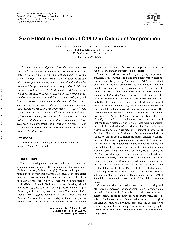摘要
Microparts are more difficult to form than macroparts because of the size effect on material properties and the size effect on friction. Friction size effect was studied in this research. Cylinder compression was carried out with using lubrication talc powder, petroleum jelly, and soybean oil and without lubrication. The specimen material was copper alloy C3602 that was thermally treated at 623, 723, 823, and 923 K for 1 h in nitrogen atmosphere, respectively. The specimens were manufactured in an instrument lathe with initial diameters of 6, 4, 2, and 1 mm, respectively, and a height-to-diameter ratio h(0)/d(0) = 1.5. The experiment was carried out at room temperature on a universal testing machine, and the strain rate. epsilon = 0.0025 s(-1). The results show that the friction size effect was obvious in the case of lubrication with soybean oil. The friction factor increased distinctly with the miniaturization of the specimen size. However, the friction size effect was not found in the case of other lubrication conditions. The reason for this phenomenon is also discussed in this article.
- 出版日期2010
- 单位哈尔滨工业大学
